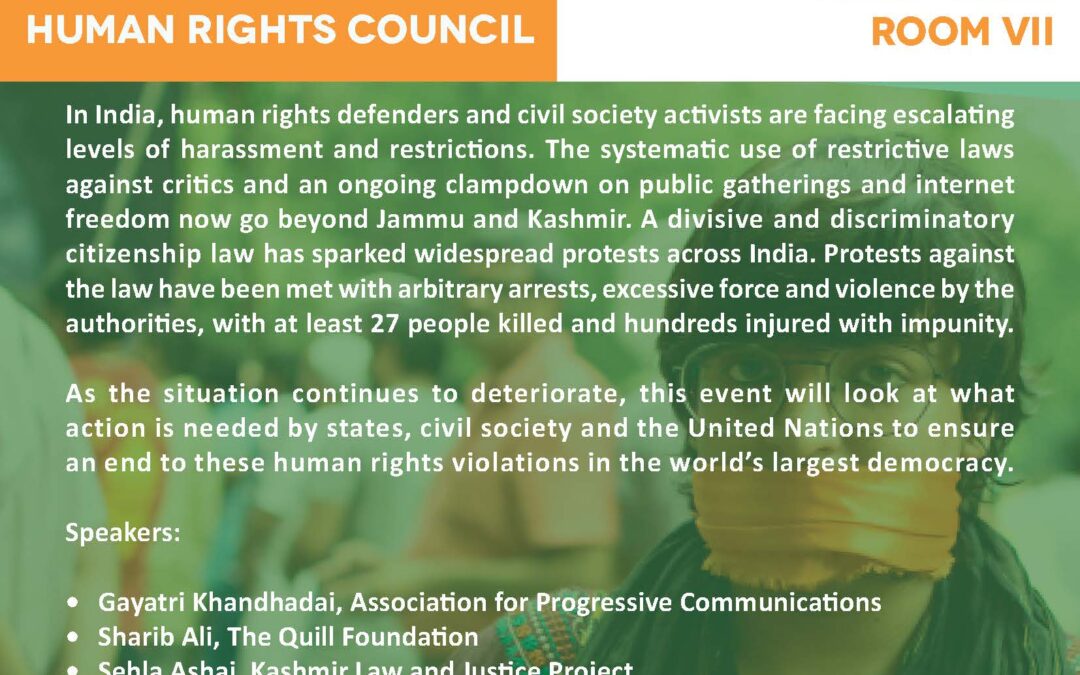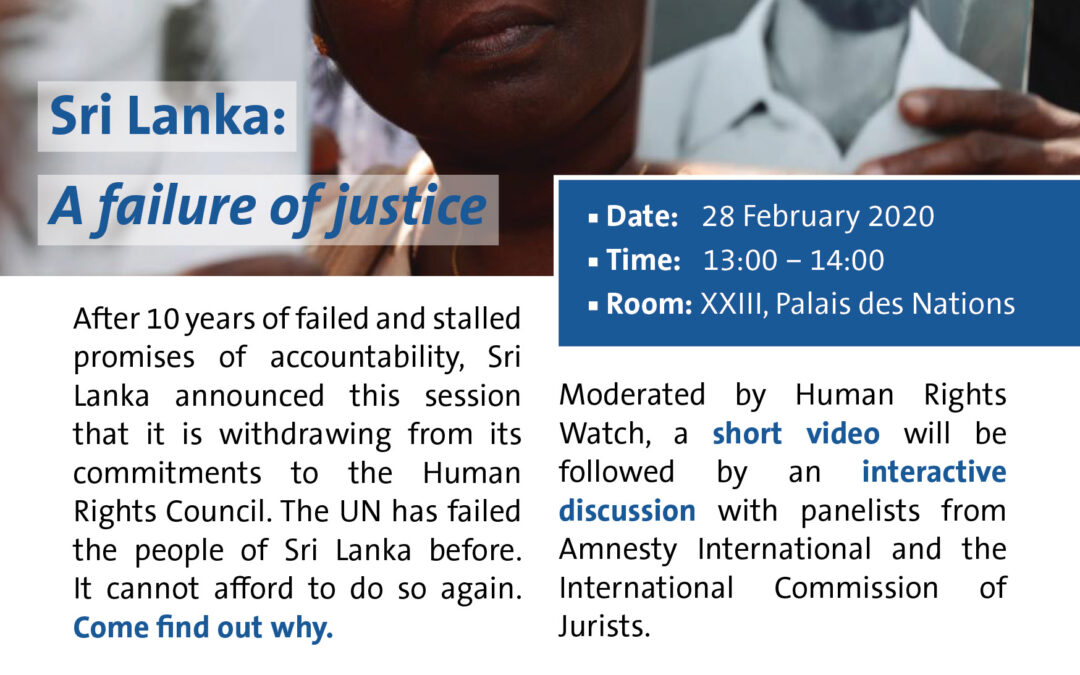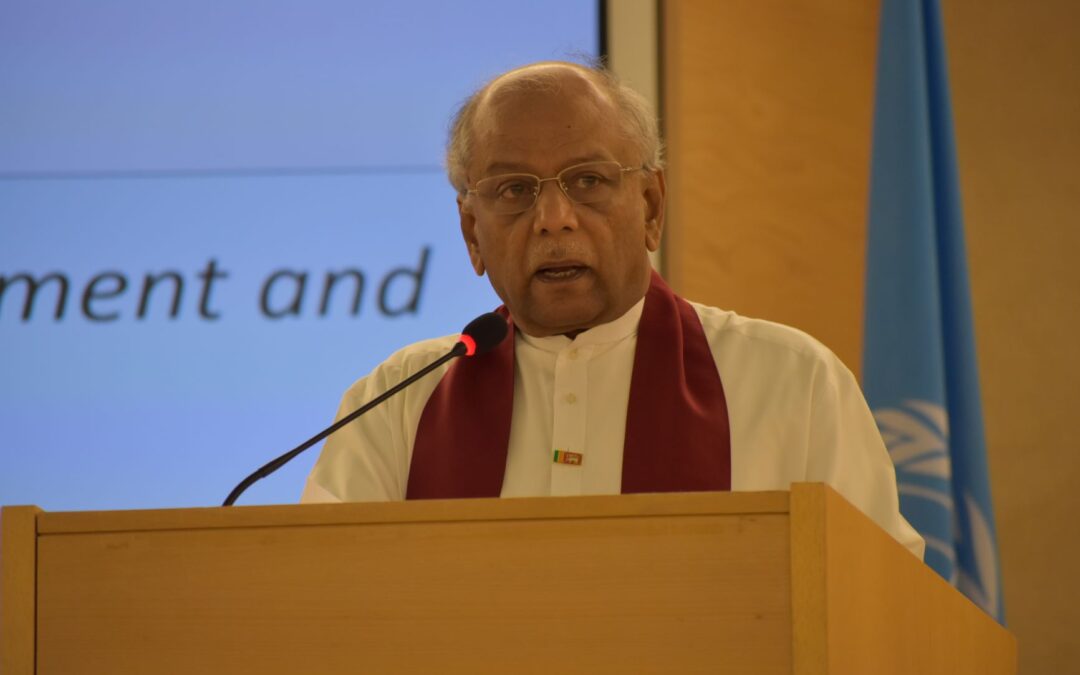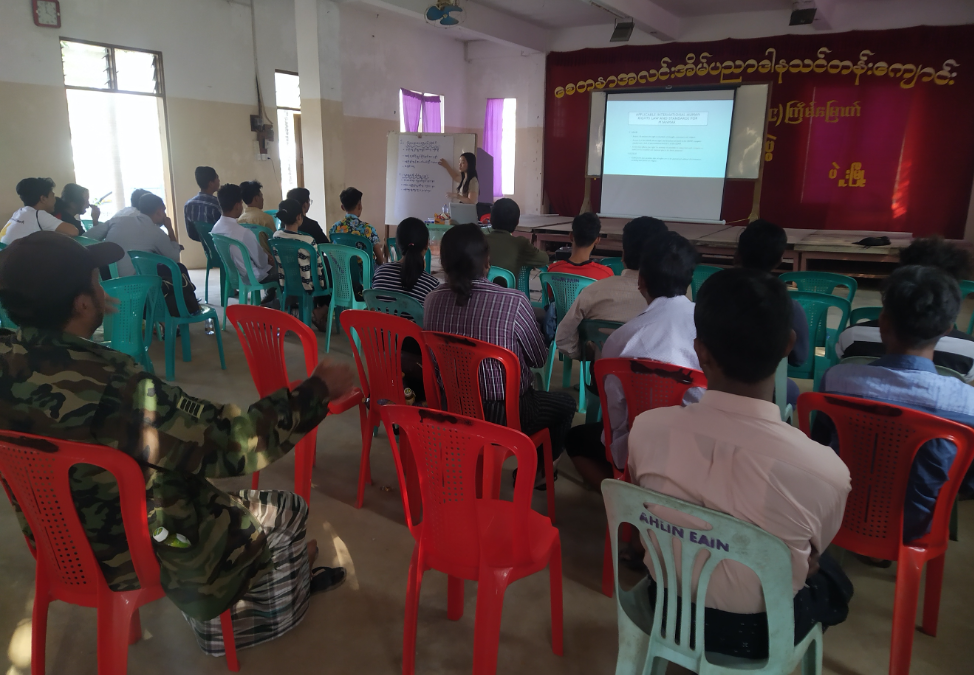
Feb 27, 2020 | Events, News
On 2 March, the ICJ and other NGOs will present discussion of the situation for human rights in India at a side event to the UN Human Rights Council in Geneva.
The event takes place Monday 2 March 2020, 14:00 – 15:00, in Room VII, Palais des Nations, Geneva.
In India, human rights defenders and civil society activists are facing escalating levels of harassment and restrictions. The systematic use of restrictive laws against critics and an ongoing clampdown on public gatherings and internet freedom now go beyond Jammu and Kashmir. A divisive and discriminatory citizenship law has sparked widespread protests across India. Protests against the law have been met with arbitrary arrests, excessive force and violence by the authorities, with at least 27 people killed and hundreds injured with impunity.
As the situation continues to deteriorate, this event will look at what action is needed by states, civil society and the United Nations to ensure an end to these human rights violations in the world’s largest democracy.
A flyer for the event can be downloaded here in PDF format: UN-Event-India-2019

Feb 27, 2020 | Events, News
An event at the UN Human Rights Council on 28 February will highlight the continuing failure of Sri Lanka to secure justice for crimes under international law, and discuss ways forward for international efforts to fill the gap.
The event will take place 28 February 2020, 13:00 – 14:00, in Room XXIII of the Palais des Nations in Geneva.
It will be moderated by Human Rights Watch, with a short video will be followed by an interactive discussion with panelists from Amnesty International and the International Commission of Jurists.
A flyer for the event can be downloaded in PDF format here: HRC43 – Sri Lanka

Feb 27, 2020 | Advocacy, Non-legal submissions
The ICJ today urged law reforms to address discrimination against minorities in Myanmar, during an interactive dialogue with the UN High Commissioner on Human Rights on her report on Rohingya and other minorities in Myanmar, at the Human Rights Council in Geneva.
The statement read as follows:
“The ICJ welcomes the report of the High Commissioner,[1] delivered against the background of continuing ethnic armed conflict in Myanmar.
With over 50 years’ experience monitoring and documenting Myanmar’s human rights situation, the ICJ concurs with the High Commissioner’s conclusions and recommendations.
While the root causes of violations and abuses against the Rohingya and other persecuted minorities in Myanmar may be complex, as the Fact-Finding Mission already reported to the Council in September 2018, the steps required to address them are by now “well known”.[2]
One essential step is comprehensive legal and justice sector reform within the country.
In a briefing paper last year, the ICJ recommended three immediately achievable, concrete areas of law reform available to the Government: 1) legislative reform, including most urgently of the 1982 Citizenship Law; 2) Constitutional reform, to protect the right of citizens to full political participation; and 3) interim measures to address discrimination on the basis of race or ethnicity.
At the same time, it is imperative the international community continues to support the various international accountability efforts underway, including the work of the International Criminal Court and Independent Investigative Mechanism for Myanmar.
The ICJ would like to ask: what role do you see for States and civil society in relation to monitoring and implementation of your recommendations, particularly with respect to law and justice sector reform?”
[1] UN Doc A/HRC/43/18
[2] UN Doc A/HRC/39/64 (12 September 2018), para 102.

Feb 27, 2020 | News
The ICJ today condemned the Sri Lankan Government’s announced “withdrawal” of support for the process under UN Human Rights Council (UNHRC) Resolutions 30/1, 34/1 and 40/1.
Minister of Foreign Affairs, Dinesh Gunawardane, formally announced the decision on 26 February at a High-Level Segment of the 43rd session of the UNHRC in Geneva.
“The Government of Sri Lanka’s refusal to implement effective measures for truth, justice, accountability and reconciliation, including as set out in the resolutions of the Human Rights Council, places it in violation of its obligations under international law,” said Frederick Rawski, ICJ’s Regional Director for Asia and the Pacific. “Holding perpetrators of human rights violations accountable at the international level now appears to be the only real option – including referral to the International Criminal Court, the creation of an ad hoc international mechanism, and the exercise of universal jurisdiction.”
Gunawardane stated that the Government of Sri Lanka would instead “achieve sustainable peace through an inclusive, domestically designed and executed reconciliation and accountability process, including through the appropriate adaptation of existing mechanisms, in line with the Government’s policy framework.”
“It is the Sri Lankan Government’s failure to initiate a credible and comprehensive approach to transitional justice in the aftermath of the war that led to the intervention of the international community in the first place,” said Rawski. “Sri Lanka’s domestic legal system has repeatedly demonstrated that it is unable to address systemic and entrenched impunity for crimes under international law perpetrated by the military and security forces,” he added.
Pronouncements by the President, on protecting military personnel from any accountability measures coupled with appointments to senior command positions individuals credibly accused of serious human rights violations indicate that the long history of impunity of security forces in Sri Lanka is set to continue.
The ICJ is deeply concerned that the Government’s official refusal to implement the UN resolutions comes at a time when the human rights situation in Sri Lanka is rapidly deteriorating. It threatens to undermine even the meagre progress made over the past few years, which albeit slow and wholly insufficient, has been primarily due to the continued engagement of the Council, OHCHR and international community. The UNHRC process is also the only forum at the global level where Sri Lankan civil society and victim groups have had the opportunity to engage openly in dialogue with the Government and other States on human rights concerns in Sri Lanka.
The validity of adopted resolutions of the Council does not depend on their acceptance by the government concerned. Reporting and discussion of Sri Lanka’s implementation or failure to implement them will take place this year and in 2021 at the Council regardless of the Government’s position.
Contact
Frederick Rawski, ICJ’s Asia Pacific Regional Director, t: +66 2 619 84 77; e: frederick.rawski(a)icj.org

Feb 27, 2020 | Advocacy, News
In January and February 2020, the ICJ supported community dialogue events on international and national law and standards relating to freedom of thought, conscience, religion and belief.
The events were organized by the Young Men’s Christian Association (YMCA) for around 50 youths and human rights defenders from Chin State and Bago Region in Myanmar.
The program sought to improve the capacity of local youths and human rights defenders from Chin State and Bago Region to understand how freedom of religion or belief (FoRB) is protected by the international and national legal frameworks and apply this understanding to their activities.
The ICJ’s national legal researcher, Ja Seng Ing, introduced the concept of freedom of religion or belief (FoRB) u, and applicable international standards on FoRB for Myanmar including how FoRB interacts with other human rights such as freedom of expression. She presented an overview of the domestic legal framework on FoRB and highlighted the State’s obligation to implement such laws and policies to respect and protect the equality, non-discrimination and other rights of individuals and to particularly address violations of their rights to FoRB.
The participants raised the need to improve the quality of public discussion on FoRB and related human rights, and shared this experiences in advocating for the protection of FoRB – including the limitation and challenges that they have faced.
The activities are part of the ICJ’s ongoing effort to convene civil society actors and lawyers in Myanmar with a view to advancing FoRB in the country, and builds on the ICJ’s previous work on this theme.
Contact
Ja Seng Ing, ICJ Legal Researcher, e: jaseng.ing(a)icj.org
Related material
Primer on international human rights law and standards on the right to freedom of thought, conscience, religion or belief, January 2019
New report examines right to freedom of religion or belief in Malaysia, March 2019









